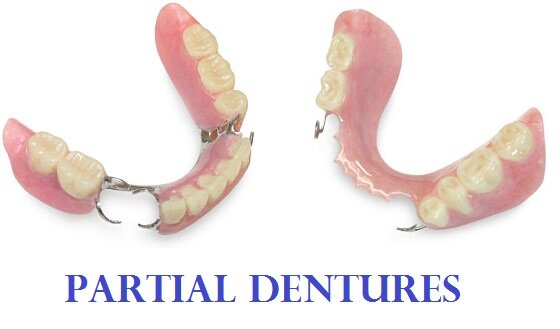
Information
The Benefits of Soft Liners
Soft liners are a medical grade soft polymer material applied to the tissue fitting surface of your hard denture base. Soft liners behave like a shock-absorbing cushion when you are chewing. Soft liners can be applied to new dentures, old dentures, relines and rebase situations.
Soft liner benefits
If your denturist has meticulously adjusted your dentures fit and you are still unable to find comfort with your denture, you may want to consider a soft liner.
Soft liners are appropriate for:
Flat or nearly flat gum tissues
Gums with thin tissues over bony areas
Chronically sore gum tissues
Facts about soft liners
Over 20 years of advances and developments in quality soft liners
Increased comfort during chewing and daily wear
Clinical evidence indicating a high acceptance by patients
Based on patient home care cleaning, soft liners have an average lifespan of two to four years depending on your physiology.
Requirements of care for soft liners
Soft liners require home care and proper cleaners to maintain their vitality
As with all removable dentures, soft liners require a regular check up to ensure fit and oral health.
Your denturist will provide professional cleaning as well as, education in the maintenance of your soft liner.
COE-Comfort
Coe-comfort (tissue conditioner)
During the time you have worn dentures, your mouth has experienced considerable change. Since your dentures cannot change, they no longer fit as they once did. Properly fitting dentures can be prescribed for you only if an impression is made of physiologically healthy tissue. This treatment is designed to allow the tissue to relax and return to its normal, healthy condition.
How many treatments will I need?
Some mouths respond to treatment sooner than others. At your next examination, we will be able to determine what progress has occurred. As soon as your oral tissue is physiologically sound, we will proceed with your denture service.
What is the white lining on my dentures?
The white lining is a dough-like dental plastic. This plastic is especially designed to remain moldable at mouth temperature and allow the tissue to restore itself to a healthy condition.
How should I clean the treatment lining?
Simply rinse the lining with cold tap water. Avoid touching the lining during the cleaning process. Follow your usual procedures for cleaning the rigid portion of your denture
Helpful Tips to care for your dentures
Don’t use an ordinary toothpaste to clean your dentures – it can scratch them, creating grooves where stains and odour-causing bacteria can grow, potentially harming the aesthetics of your dentures, just brush your dentures with a soft-bristled brush daily.
Remove your dentures each night to give your mouth and gums a chance to breathe.
Always store your dentures in water to prevent them from drying out.
Before speaking, bite down and swallow to set your dentures in place.
Practice speaking or reading aloud with your dentures.
Consider using a denture adhesive as a way to keep dentures in place, making eating and speaking easier and increase overall confidence.
If your dentures crack, chip or break, call your denturist to help you. Don’t try to fix them yourself.
If your dentures become loose, be sure to make an appointment with your denturist.
Immediate dentures
What to expect
Your dentist will extract your remaining teeth and insert the new dentures that your denturist has made. The following day you will see your denturist for any adjustments that may be necessary.
It takes 6 to 8 weeks to learn to chew with your new teeth. During the next few months your gums and the underlying bone will be healing and shrinking, causing your dentures to become loose and possibly causing sore spots. Your denturist will adjust your dentures when this occurs. 3 months of adjustments are usually included with the price of your new dentures.
After 10 to 12 months your healing should be complete, and your dentures will need relining for a better fit. This cost is not included in the price of your dentures
Your first dentures
A great deal of time and care is spent in the construction of your dentures. Even more time and effort must be expended for you to master the use of them your effort put forth to master your new teeth, determines how successful you will become in adjusting to them. It will take perseverance and determination to succeed. Thousands of people wear dentures successfully and with time you will too!
First Impressions
When you first have your dentures inserted in the mouth you may have the sensation of fullness, have difficulty swallowing or gagging and extra saliva flow. These difficulties will gradually disappear the longer you wear your dentures.
Appearance
Natural settling of the dentures takes some time and the appearance of the dentures will also improve. You may find your facial expressions are a little strained at first but this too will change as the dentures settle. Try to talk and laugh in a natural way and you will be surprised how quickly your natural facial expressions will return.
Speech
When you first receive your new teeth, you may notice a thickness in your speech and perhaps a lisp. Try speaking as much as possible, perhaps reading aloud. This practice will train the tongue and lips to relax and these difficulties will correct themselves in a short time.
Eating
Practice, practice, practice…. Will be required to learn to chew with your new dentures. Start with soft foods cut into small pieces and chewed on both sides of the mouth at the same time. Do not bite off food with your front teeth as this will dislodge the denture. New memory patterns must be established for both the facial and chewing muscles. As you grow accustomed to your new teeth more solid foods may be attempted.
Tenderness
You can expect some soreness from your new dentures and these pressure spots can be relieved by your denturist. Take the dentures out until you can make an appointment putting them in at least 2 hours before your appointment. Your gums will be constantly changing and healing over a long period of time. Regular visits to your denturist for adjustments will be necessary.
Temporary and permanent liners are not included in the cost of initial dentures.
The healing process can take up to one year before you are ready to have a permanent reline placed in your denture.
Implant retained dentures
Loose dentures can be remedied with the addition of implant anchors placed by a dental surgeon.
Your denturist will fit dentures over implants to provide stability, increased chewing force, reduced tissue irritations, and decreased bon loss. Implant retained dentures are no longer financially out of reach for the average consumer. Your denturist will help you in understanding the facts and procedures involved in implant dentistry.
Implant facts
Optimum tooth replacement is achieved with implants. Implants are root replacements. Once implanted into your jaw, the bone and the implant body integrate into one cohesive member and provide a stable and reliable anchor on with a tooth may be fabricated. Implant bodies are also employed as retention abutments used in retaining full or partial dentures.
In studies, dental implants are shown to preserve bone and reduce gum tissue loss. Eating, speech and laughter can now be performed with confidence. Patients feel better and gain a new-found zest for life, as implants are the closest thing to natural teeth.
Historically, dental implants have a high clinical success rate. Patients who have opted for dental implants often remark how similar the implant feels to their own natural teeth. The patient can enjoy new found confidence.
Implant Benefits:
Improved confidence
Stability during eating
Increased preservation of bone
Decreased gum tissue shrinkage
Less food seepage under the denture
Superior esthetics
Social interactions accomplished with confidence
A feeling close to that of your natural teeth
Dietary nutritional benefits
Personalized standard dentures
Your denturist will construct a personalized standard denture just for you. If your dentures are more than five years old, your denture specialist will help you decide what type of denture is best for your needs.
What is a personalized standard denture?
A personalized standard denture is made to suit each person’s individual looks and needs.
Your prosthesis is handcrafted to match your age, complexion and facial features. Considerations such as the shape of your jaw line, lips, eyes, eyeglasses and hair color are noted.
The teeth are set so that they look natural and your smile is esthetically pleasing.
A certain number of procedures and good quality teeth are used in the construction of your dentures.
A personalized standard denture fits most people comfortably and functions well.







